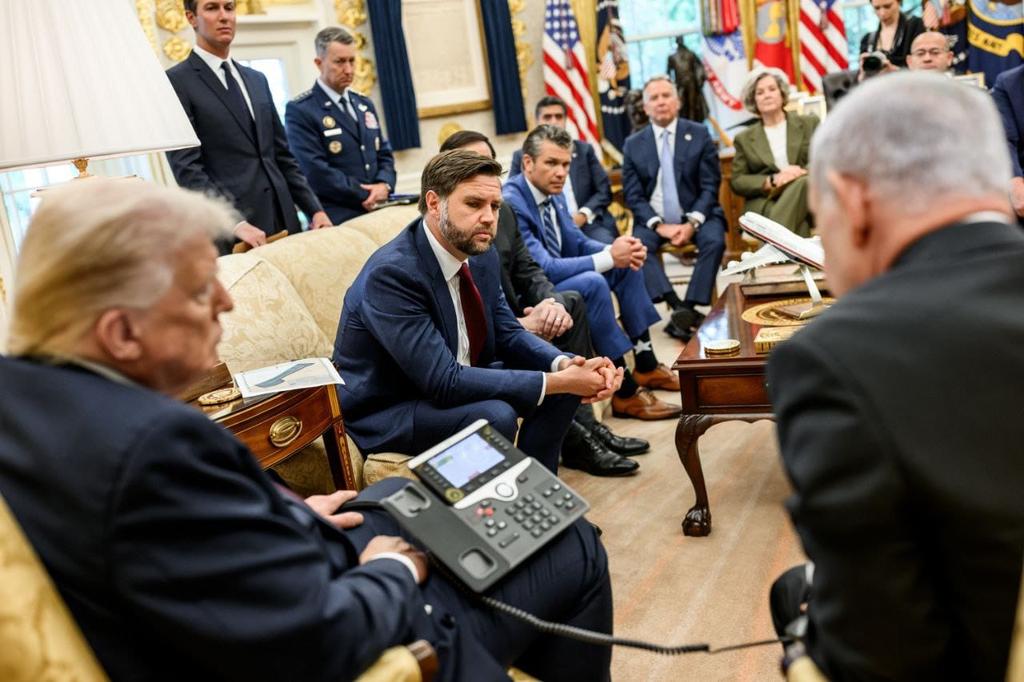Trump's statement thwarts Israeli plans as Hamas plays for time
Decision-makers in Jerusalem believed that Hamas intended to use Trump's proposal as a starting point for negotiations, without backing down from its long-standing demands. However, Trump's congratulatory statement to Hamas for accepting the framework cemented a new reality and effectively cornered Israel.

President Donald Trump, pictured with Qatar's Emir Sheikh Tamim Bin Hamad Al-Thani, has apparently succeeded in enlisting Qatar and Turkey to pressure Hamas.
After Hamas said it accepted President Donald Trump's ceasefire plan "provided that the conditions on the ground are resolved," Israel had planned to issue a statement declaring that Hamas' response amounted to a rejection of the proposal. The interpretation in Jerusalem was that the Hamas merely sought to use the Trump plan as a negotiation platform while refusing to compromise on its key demands: an end to the war, a complete IDF withdrawal from the Gaza Strip, and the organization's continued rule there.
But just as that statement was being prepared, Trump's message praising Hamas' response arrived. His endorsement solidified the perception that progress had been made – and left Israel with limited room to maneuver. Following several reassessments, Jerusalem released a late-night statement from the Prime Minister's Office announcing that "Israel is preparing for the immediate implementation of the first phase of President Trump's plan for the release of all hostages."
Despite the diplomatic optimism, officials in Israel are skeptical about the chances of success. Hamas' vague response likely reflects a desire to avoid angering the US president while maintaining its demands, which have remained unchanged for two years.
Stopping the IDF maneuver
Some officials believe there is a considerable chance that the Trump plan will ultimately fall apart. Others maintain a cautiously hopeful outlook, noting that Trump has staked his full political weight on the initiative and has apparently succeeded in enlisting Qatar and Turkey to pressure Hamas.
Jerusalem hopes that Trump's have given Qatar a defense pact and major arms deals to Turkey will ensure both countries exert real influence on Hamas, which risks isolation if it refuses the deal.
Israel, for its part, insists that it will not compromise on its security and will not agree to a full withdrawal from the Strip. It will demand continued control over strategic areas such as the Philadelphi Corridor, the perimeter along the Gaza-Israel border, and 70 Ridge, an elevation in eastern Gaza of strategic value.
In the meantime, IDF forces in Gaza have been ordered to stop the advance of the ground maneuver – but not to hold fire. Chief of Staff Lt. Gen. Eyal Zamir instructed the Operations Directorate to allocate all available intelligence and firepower assets to the Southern Command for force protection. Throughout the weekend, the army conducted multiple strikes in the Gaza Strip to defend its troops.
Regardless of the diplomatic efforts, the IDF is also preparing for the possibility that Hamas will sabotage the plan, in which case it would resume operations with full force – this time with US backing.

No comments:
Post a Comment